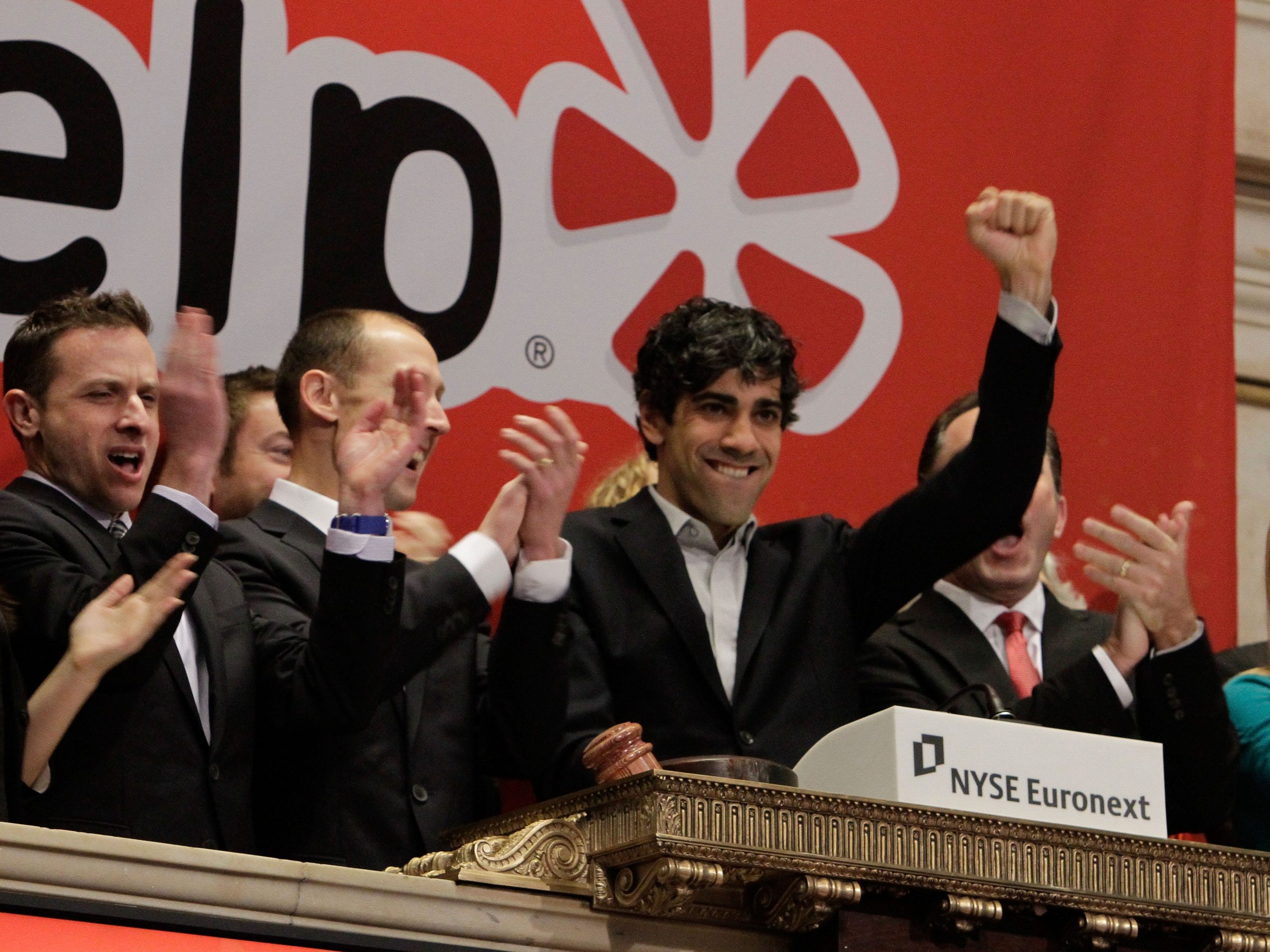
AP/Richard Drew
- Yelp is rallying around the Department of Justice lawsuit accusing Google of violating antitrust laws.
- Yelp called the suit a crucial step in “confronting Google’s anticompetitive abuses and monopoly power in search” and said Google is “directly harming consumers” through its behavior.
- Google called the lawsuit “deeply flawed” and said it would “artificially prop up lower-quality search alternatives.”
- Yelp has been waging war against Google for nearly a decade. The reviews site alleges that Google consistently violates antitrust laws by placing its own products above those from competitors in Google Search results.
- Yelp, along with other Google competitors, urged the European Union to take action against Google in 2017, which resulted in a $2.7 billion fine against Google.
- Visit Business Insider’s homepage for more stories.
Reviews site Yelp is cheering the Department of Justice’s decision to file an antitrust lawsuit against Google.
The DOJ on Tuesday filed suit against Google, saying the company harmed smaller competitors using exclusionary business deals. During a press conference Tuesday morning, Associate Deputy Attorney General Ryan Shores said Google is a monopoly that “must be stopped.” If the government’s suit is successful, Google could be forced to restructure its business.
In a blog post Tuesday, Yelp called the suit a crucial step in “confronting Google’s anticompetitive abuses and monopoly power in search.”
“By systematically reducing the quality of its search results in order to entrench and extend its search and search advertising monopolies, Google is directly harming consumers,” Yelp’s senior vice president of public policy, Luther Lowe, said in the post.
Lowe wrote that Google automatically nudges users toward its own reviews product over competitors like Yelp. He described the tactic as “self-serving bias” that he said happens “literally billions of times per week in the United States.”
In a statement Tuesday morning, Google described the DOJ's lawsuit as "deeply flawed."
"This lawsuit would do nothing to help consumers," Kent Walker, Google's chief legal officer and senior vice president global affairs wrote in a blog post. "To the contrary, it would artificially prop up lower-quality search alternatives, raise phone prices, and make it harder for people to get the search services they want to use."
Walker said Americans find information in many ways, and that Google doesn't just compete with other search engines, but with platforms like Twitter, Kayak, OpenTable, Pinterest, and Amazon.
Yelp and Google have been locked in a battle over search results for nearly a decade. Google at one point attempted to buy Yelp for $550 million, according to The New York Times, but the deal fell apart, seemingly due to issues on both sides: Analysts warned that owning Yelp could harm Google's search results and then-Apple CEO Steve Jobs urged Yelp CEO Jeremy Stoppelman not to take the deal.
"He felt that Yelp was a great company and wouldn't be a great company if it fell in the hands of Google," Stoppelman later told the Associate Press.
Stoppelman later accused Google of stealing reviews from Yelp and displaying them in its own competing products, a matter that Stoppelman testified about before the Senate Judiciary Committee in 2011.
Since then, Yelp has consistently alleged that Google violates antitrust laws by placing its own products above those from competitors in Google Search results, giving it an unfair advantage over companies like Yelp. In 2017, Yelp and some of Google's other competitors urged regulators in the European Union to take action against Google in a letter to antitrust chief Margrethe Vestager, accusing the company of undermining competition and "destroying jobs and stifling innovation."
The EU later served Google with a $2.7 billion fine, which was then the biggest antitrust fine in its history, for unfairly prioritizing its own shopping service above competitors' products. The EU has since levied two more massive fines for anticompetitive behavior, with the total fines since 2017 now surpassing $9 billion. Google is now appealing the fines.

